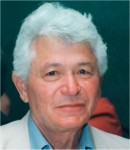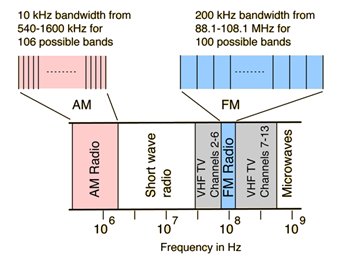
Plenary Lecture
Spin Chemistry and Effects of Electromagnetic Fields on Living Organisms

Professor Gertz I. Likhtenshtein
Department of Chemistry
Ben-Gurion University of the Negev Beer-Sheva
Israel
&
Institute of Problems of Chemical Physics
Russian Academy of Science
Chernogolovka Moscow Region
Russia
E-mail: gertz@bgu.ac.il
Abstract: Today each and every of us is submerged in an ocean of electromagnetic fields from AM radiofrequency broadcasting up to transcontinental microwave relay networks:

The escalated use of radiofrequency (RF) wireless devices, which emit non-ionizing fields, have raised concerns among ordinary people and experts regarding the potential adverse effects on humans health.and the emotional state. This presentation is a look from the point of view of spin chemistry, that which can pretend for scientific explanations these effects in the area. Modern spin chemistry stands on for fundamental rules: 1) Resonance adsorption of radio and microwave electromagnetic fields, 2) Spin conservation rule, 3) Triplet state splitting in magnetic field, and Singlet triplet conversion via certain mechanisms in radical pairs Spin chemistry imposes strict requirements on effects of magnetic and electromagnetic fields on living organisms . Majority of the published data fall short of to these limits All findings which don’t fit to “a Procrustean bed” of the spin chemistry can be considered as sad artefacts or enigmatic challenging calls in the future. Spin chemistry experts and biochemists have to cooperate in the investigation of biological radical reactions in vivo and in vitro.
Brief Biography of the Speaker: Gertz I. Likhtenshtein received his PhD (1963) and Doctor of Science (1972) degrees at the Semenov Institute of Chemical Physics, Russian academy of Science, Moscow. In 1976 this Institute granted him the Professor title. In 1965 he was appointed on the position of Head of Laboratory of Chemical Physics of Enzyme Catalysis. In 1992 Likhtenshtein moved to the Department of Chemistry, the Ben-Gurion University of Negev (Israel) on the full Professor position, was in charge of the Laboratory of Chemical Biophysics and has been emerited in 2003. From 2016 Likhtenshtein is an adviser to the director of Institute of Problems of Chemical Physics, Russian Academy of Science, Chernogolovka, Moscow region. Among his awards are the Medal of the Exhibition of Economic Achievement (1968), the USSR State Price for pioneering research on spin labeling in molecular biology (1977), the Diploma of Discovery USSR for works on nitrogen fixation (1979), the Diploma of the Israel Chemical Society (2000) and the V. V. Voevodsky International Price for Chemical Physics (2007), and the Academician N. M. Emanuel Golden Medal for Chemical Biophyscs (2015). He was a member of the International ESR Society, the American Biophysical Society, the Israel Chemical Society and the Israel ESR Society. At present his main scientific interests focus on mechanism of the light energy conversion and on novel methods of immunoassay, NO and antioxidants analysis. Likhtenshtein authored 11 scientific books and about 390 papers.